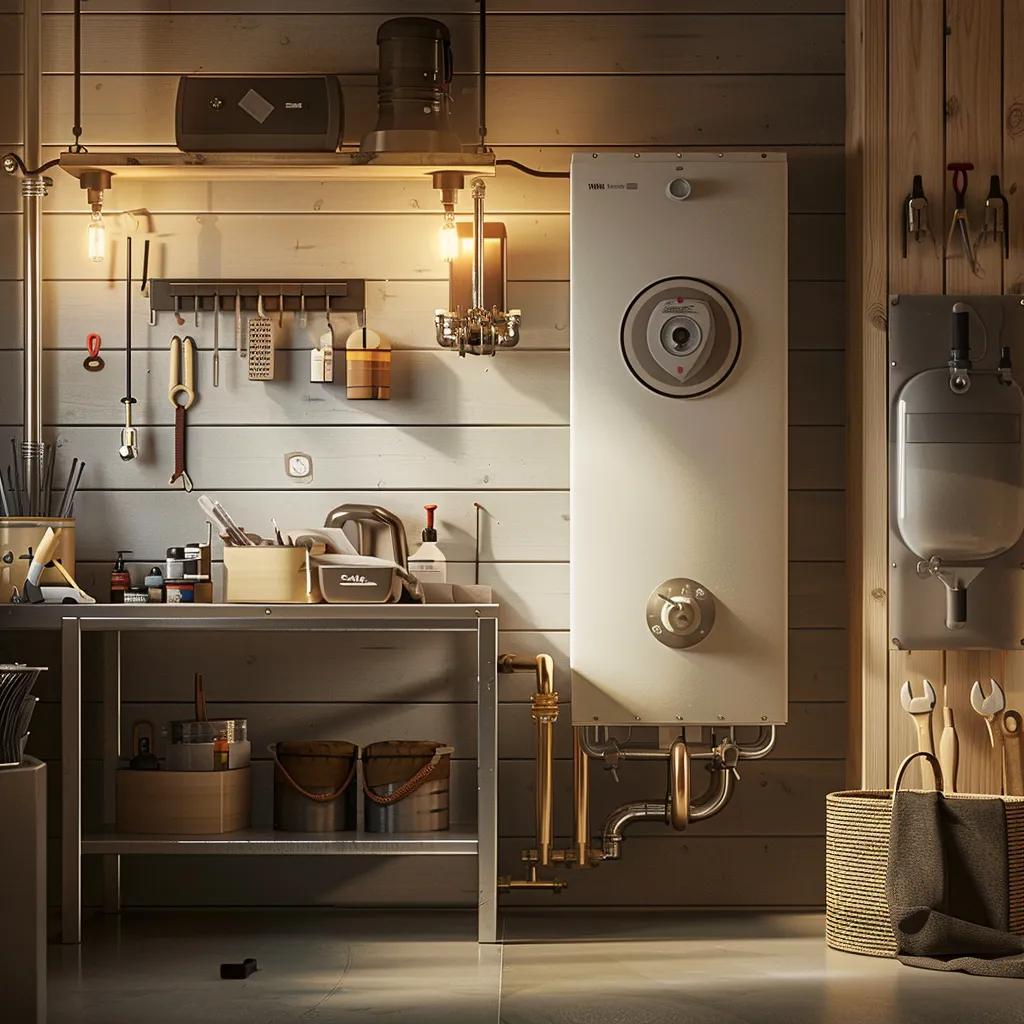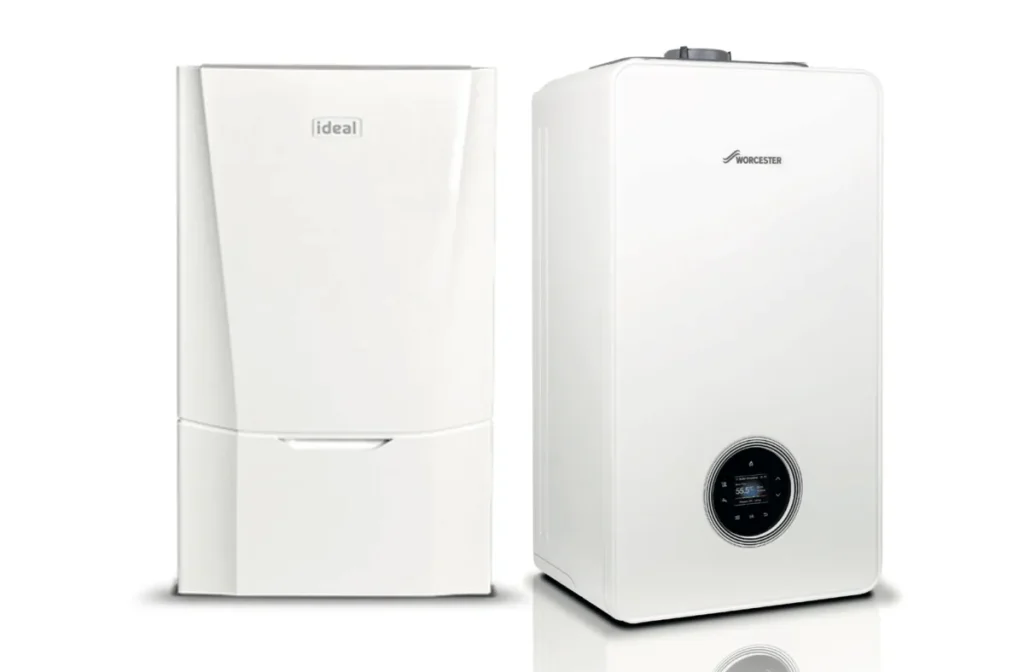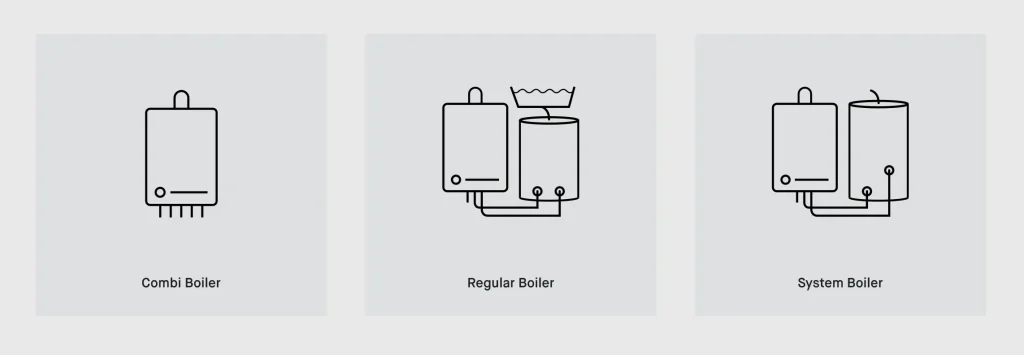
New Boiler Installation Cost Breakdown: UK Fees & Pricing

Installing a new boiler represents a significant home investment and yet many UK homeowners face uncertainty over upfront prices, installation fees and long-term savings. In this guide on new boiler cost, you’ll discover average UK boiler prices, how type and brand influence totals, what installation factors drive labour charges, and where you can claim grants or finance options. We’ll cover:
- Core pricing benchmarks and boiler-type comparisons
- Key cost drivers—size, efficiency, complexity and extras
- Money-saving schemes, grants and finance routes
- Replacement timing, ROI and property value impacts
- Fuel-type cost differences and future-proofed boiler options
- Expert answers to the most frequently asked cost questions
This roadmap unifies installation costs, efficiency savings and grant eligibility under one cost-focused overview to empower your purchasing decision.
What Is the Average Cost of a New Boiler in the UK?
A new boiler in the UK typically costs between £600 and £2,500 for the unit, with full installation rising to £1,500–£3,500 depending on type, brand and site complexity. These totals combine Product → Price → Installation variables to reflect real-world quotes and market trends.
Average Boiler Installation Costs
The cost of installing a new boiler in the UK can range significantly, typically falling between £1,500 and £3,500. This price range accounts for the boiler unit itself, which can cost from £600 to £2,500, along with the associated labour and installation expenses. The final cost depends on factors such as the type and brand of the boiler, as well as the complexity of the installation process [1].
This information supports the article’s overview of the average costs associated with new boiler installations, providing a realistic expectation for homeowners.
For example, upgrading from an old conventional boiler to a high-efficiency combi model often adds efficiency savings but increases initial outlay. Understanding this price spectrum sets realistic expectations before soliciting installer quotations.
How Do Boiler Types Affect the Average Price?
Different boiler designs carry distinct manufacturing costs, complexity levels and material requirements.

Before comparing specifics, consider this breakdown of common boiler types and their cost profiles.
Boiler Cost Comparison Table: Combi, System, Conventional, Gas, Oil, Electric
| Boiler Type | Average Unit Cost | Installation Range | Typical Suitability |
|---|---|---|---|
| Combi (Gas) | £600–£1,500 | £1,500–£3,000 | Small to medium homes |
| System (Gas) | £700–£1,600 | £1,600–£3,200 | Homes with multiple baths |
| Conventional (Gas) | £800–£1,800 | £1,800–£3,500 | Older properties |
| Oil Boiler | £900–£2,200 | £2,000–£3,800 | Rural homes off gas network |
| Electric Boiler | £500–£1,200 | £1,000–£2,500 | Flats, supplementary heat |
Combi boilers offer compact installation at lower labour costs, while conventional and system boilers demand extra tank fittings that raise total. Electric models are cheapest to purchase but may incur higher running costs.
What Are Typical Installation Costs for a New Boiler?
Installation costs cover labour, safety checks and site preparation. Labour charges in the UK average £150–£250 per day for a Gas Safe engineer, with most installs taking 1–3 days.
- Standard Swap – Replacing like-for-like in same location: £1,500–£2,500
- Relocation – Moving boiler position or adding pipework: £2,000–£3,500
- Complex Upgrades – New flue, scaffold, system flush: £2,500–£4,000
Complex installations require additional materials and time, which increases total labour cost and may involve scaffold hire or decorator fees once the work is complete.
How Does Boiler Brand Influence New Boiler Cost?
Premium boiler brands invest in advanced heat exchangers and digital controls that raise unit cost but often include longer warranties and greater efficiency.
| Brand | Entry Unit Cost | Mid-Range Cost | Premium Cost | Warranty |
|---|---|---|---|---|
| Worcester Bosch | £700 | £1,200 | £1,800 | Up to 10 years |
| Vaillant | £650 | £1,100 | £1,700 | Up to 7 years |
| Ideal | £600 | £1,000 | £1,500 | Up to 10 years |
| Viessmann | £800 | £1,300 | £1,900 | Up to 12 years |
Higher-end brands improve energy efficiency (AFUE), integrate smart controls and often deliver lower running costs that partially offset the initial investment.
Which Factors Most Influence the Cost of a New Boiler?
How Does Boiler Size and Heating Capacity Affect Price?
- Under-sized units (≤24 kW) cost £600–£1,000 and suit apartments.
- Mid-range units (25–30 kW) cost £800–£1,400 for medium homes.
- High-capacity units (>30 kW) cost £1,200–£2,500 for larger properties.
Selecting correct capacity prevents short-cycling and inefficiency while avoiding overspend on unnecessary output.
What Role Does Boiler Efficiency (AFUE Rating) Play in Cost and Savings?
- Low efficiency (70–80%): £600–£1,000 unit cost with higher running expenses.
- Medium efficiency (81–89%): £800–£1,500 with balanced purchase vs. savings.
- High efficiency (≥90%): £1,200–£2,500 delivering 10–20% annual gas savings.
Investment in a >90% AFUE boiler can recoup extra upfront cost within 3–5 years through lower fuel consumption.
Boiler Efficiency and Cost Savings
Investing in a high-efficiency boiler can lead to significant long-term savings on energy bills. Boilers with an Annual Fuel Utilisation Efficiency (AFUE) rating of 90% or higher can potentially reduce annual gas consumption by 10–20%. This can help recoup the initial investment within a few years through lower fuel consumption [2].
This citation reinforces the article’s point about the financial benefits of choosing a more efficient boiler model.
How Do Installation Complexity and Labour Costs Vary?
- Straight swap: Minimal pipework, same flue route – 1 day – lowest labour cost.
- Extended pipework: Relocation of radiators/pipes adds 1–2 days.
- High-level flue: Requires scaffold hire – extra £200–£500.
- System flush: Chemical clean before installation – £100–£200.
Regional labour rates can also differ by 10–20%, with London and Southeast tending toward the higher end of the scale.
What Additional Costs Should You Expect?
Beyond boiler unit and labour, supplementary charges often include:
- Old boiler removal and disposal: £50–£150
- Magnetic filter or system inhibitor installation: £100–£200
- Thermostat or smart control fitting: £100–£350
- Radiator replacement or balancing: £50–£150 per radiator
These extras can improve system performance and lifespan but add £200–£800 to your total project cost.
How Can You Save Money on a New Boiler?
What Government Grants and Schemes Are Available?

The UK Government’s Boiler Upgrade Scheme offers grants of £400–£5,000 for low-carbon heating installations. Eligibility requires:
- Owner-occupied or landlord properties
- Boiler capacity ≤45 kW
- Meeting insulation and efficiency criteria
Check GOV.UK for application details and deadlines to secure funding that lowers your net boiler cost.
Government Grants and Schemes
The UK government offers the Boiler Upgrade Scheme, providing grants to homeowners for low-carbon heating installations. Eligibility requires the property to be owner-occupied or a landlord property, with a boiler capacity of 45 kW or less. Meeting the criteria can reduce installation costs by up to 30% [3].
This citation supports the article’s information on available financial assistance for new boiler installations, encouraging readers to explore potential savings.
Government Grant Eligibility Checklist
| Requirement | Eligibility Criteria | Grant Amount |
|---|---|---|
| Property Type | Owner-occupied or landlord | Up to £5,000 |
| Boiler Capacity | ≤45 kW | £400 per kW |
| Insulation Standard | Cavity wall & loft | None |
| Installer Certification | MCS-certified | Mandatory |
Meeting these criteria can reduce your installation cost by up to 30% without compromising on quality.
What Boiler Finance Options Can Help Spread the Cost?
Flexible finance plans let you stagger payments over 1–5 years with 0% APR or low-interest packages.
- Interest-free credit: 12–24 months without charges.
- Boiler leasing: Monthly rent with maintenance included.
- Personal loans: 3–7 years repayment, variable rates.
Choose a plan that balances monthly outlays against overall interest to maintain household cash flow.
What Energy-Saving Tips Reduce Running Costs?
- Smart thermostat installation to tailor heating schedules.
- Improved loft and wall insulation to minimise heat loss.
- Annual servicing to maintain efficiency and prevent breakdowns.
- Magnetic filter to protect against sludge build-up.
These measures support boiler performance while delivering up to 15% additional savings on energy bills annually.
When Should You Replace Your Boiler? Signs, Benefits, and Cost Considerations
What Are the Common Signs You Need a New Boiler?
- Age over 10–15 years with frequent repairs.
- Rising fuel bills despite consistent usage patterns.
- Uneven heating and poor hot water flow.
- Noise, leaks or pilot light issues signalling component wear.
Early replacement prevents emergency breakdowns and leverages warranty-backed efficiency gains.
How Does Replacing Your Boiler Affect Property Value and Energy Bills?
A new, high-efficiency boiler can add 3–5% to your home’s market value and reduce annual heating costs by up to £300. Buyers recognise modern boilers as low-risk assets that promote EPC improvements and ongoing savings. Investing now often yields a 4–6 year payback period through lower energy spending and enhanced property appeal.
What Are the Cost Differences Between Boiler Fuel Types?
How Much Does a Gas Boiler Cost Compared to Other Fuels?
- Gas: £600–£1,800 unit; £1,500–£3,500 installed
- Oil: £900–£2,200 unit; £2,000–£3,800 installed
- Electric: £500–£1,200 unit; £1,000–£2,500 installed
- LPG: £700–£1,600 unit; £1,800–£3,200 installed
Off-grid fuels require tanks and higher safety measures, which drive up labour and equipment costs.
What Are the Installation Cost Variations by Fuel Type?
- Gas: Standard flue and pipework, Gas Safe engineer – moderate complexity.
- Oil: External tank, oil-tight piping, specialist installer – high complexity.
- Electric: Simple wiring connection, minimal pipework – low complexity.
- LPG: Pressurised cylinder storage and safety systems – moderate-high complexity.
These differences can add £200–£1,000 to labour and compliance fees depending on fuel infrastructure needs.
Are Hydrogen-Ready and Low-Carbon Boilers More Expensive?
Hydrogen-ready and low-carbon boilers currently carry a 10–20% premium, with units costing £1,500–£3,000 and install totals of £2,500–£4,500. Early adopters invest in future-proof technology that avoids retrofit costs and aligns with forthcoming clean heating regulations.
What Are the Most Frequently Asked Questions About New Boiler Costs?
How Much Does It Cost to Install a New Boiler?
The cost to install a new boiler in the UK usually ranges from £1,500 to £3,500, combining the boiler unit price (£600–£2,500) with labour, materials and minor system upgrades.
Why Does Boiler Replacement Cost So Much?
High replacement expenses stem from certified Gas Safe engineer labour rates, safety compliance (flues, controls), additional pipework or relocation and equipment disposal fees.
Can a Plumber Install a New Boiler?
Only a Gas Safe registered engineer may lawfully install or service gas boilers in the UK. General plumbers must hold this certification to ensure safety and regulatory compliance.
How Long Does It Take to Replace a Boiler?
A standard boiler swap typically takes 1–2 days, while complex relocations or system upgrades can extend work to 3–4 days, including testing and certification.
By understanding these cost components, comparing boiler types, leveraging grants and choosing the right timing, you can secure a reliable new boiler installation tailored to your budget and efficiency goals.
References
- Energy Saving Trust, Boiler Costs and Installation (2024)
- Department of Energy & Climate Change, Boiler Efficiency Standards (2023)
- GOV.UK, Boiler Upgrade Scheme (2024)



